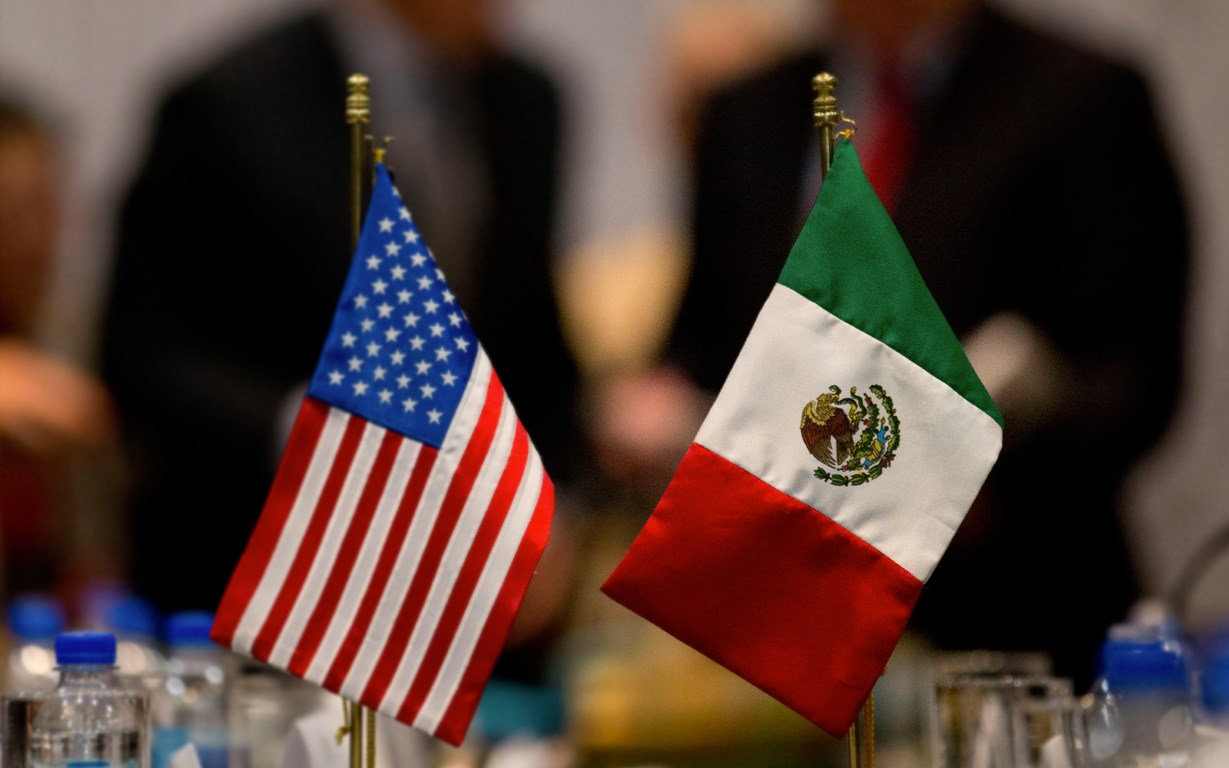Mexico-US improve customs, border cooperation
March 27, 2018 | Expert Insights

Mexico and the United States have signed three accords to improve bilateral customs procedures and accelerate the flow of agricultural produce across their border.
Background
The relation between Mexico and the United States has been under review for several years. The two countries share a maritime and land border in North America. Many agreements have been conducted between the two countries bilaterally, such as the Gadsden Purchase, and multilaterally, such as the North American Free Trade Agreement. Both countries are members of various international organizations, including the Organization of American States and the United Nations.
The two countries are known to have had close diplomatic and economic ties since the late nineteenth century during the regime of President Porfirio Díaz (1876–1911). During Díaz's presidency, Mexico opened itself to foreign investment leading US entrepreneurs to invest in agricultural enterprises and mining. During the course of the Mexican Revolution (1910-1920), the US government played an important role in supporting or rejecting support of revolutionary sections.
The border between the two countries highlights the significance of peace and security in the region, especially relating to US national security and international trade. The US is Mexico's biggest trading partner. In 2010, Mexico's exports totaled US$309.6 billion, and almost three quarters of those purchases were made by the United States. Because of the close proximity of the two nations, illegal immigration and illegal trade in drugs and in fire arms have caused differences between the two governments, but has also led to cooperation.
The election of US President Donald Trump provoked the Mexican government through threats against companies who invest in Mexico instead of the US. Donald Trump’s claims that he would construct a border wall and force Mexico to fund its construction raised questions over the future of the relationship between the United States and Mexico.
Analysis
The US Homeland Security Secretary Kirstjen Nielsen and Mexico’s Foreign Minister Luis Videgaray stated that the first agreement signed by them intends to support joint cooperation to restrict the movement of illegal merchandise across the border.
The second agreement seeks to implement programs of joint examination of cargo between the two nations. US-Mexico bilateral trade is worth half a trillion dollars per year. Thirdly, the two governments signed an accord that would promote the trade of agricultural goods, the minister said. Nielsen said the two countries are also introducing approximately 20 additional memorandums of understanding and letters of intent.
According to Mexico’s Interior Minister Alfonso Navarrete, “Border security needs to be ramped up to halt the illicit flow of arms. There needs to be much more caution taken... to reduce gradually but conclusively the high levels of violence when arms enter Mexico illegally.” Neighboring nations must also share the responsibility of attending to refugee and asylum cases, he added.
Relations between Mexico and the US have been tense after Donald Trump’s insistence that Mexico pay for the southern border wall to keep out illegal immigrants. Tensions have also stirred by Trump’s repeated threats to cancel the North American Free Trade Agreement (NAFTA). As a result, NAFTA has advised companies to transfer operations to lower-cost Mexico at the expense of US manufacturing workers.
In January, it was reported that Mexico and the United States were looking into whether armed US federal air marshals could be deployed on commercial cross-border flights, which was seen as Mexico’s latest cooperation methods with the US.
Assessment
Our assessment is that with the signing of these accords, the economies of the two nations would become more interdependent. In the recent past, both the countries have developed an extraordinary level of collaboration in addressing terrorist threats and capturing dangerous criminals. While existing programs are in place, the Mexican government is currently reviewing how security cooperation could be improved. We believe that this cooperation would help ease tensions between Mexico and the United States as they rely heavily on one another for trade and investment.








Comments